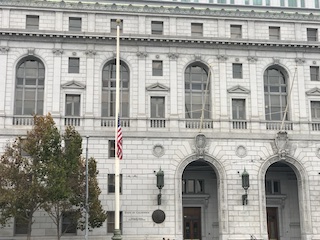Evidence Code § 970 states “[E]xcept as otherwise provided by statute, a married person has a privilege not to testify against his [or her] spouse in any proceeding.” A married person also has a privilege not to be called as a witness in any proceeding to which his or her spouse is a party. Evidence Code § 971.
Certain exceptions do exist, for example, if one spouse is charged with a crime against the person or property of another spouse or the property of a third party while in the course of committing a crime against the person or property of another spouse. Evidence Code § 972(e).
This privilege, in our experience, is rarely invoked. However, in a recent Sacramento County case, later reviewed for error by the Third Appellate District, this privilege was invoked.
The Gist of this Article: The marital privilege does not end when the spouses separate with the intent to permanently end their marriage. In the following case, a judge compelled one spouse (a wife) to testify against her husband about past physical abuse he committed of her, although at the time of trial they were still legally married. On appeal, the appellate court found this was harmless error.
On June 9, 2017, Michael Scott Barefield physically attacked and raped Hazel Doe. He attacked her by repeatedly striking her with a firearm, a violation of Penal Code § 245(b), and imprisoned her in his home.
Mr. Barefield was married to M.W. at the time, although they had separated many years before and were living separately. Before trial, the prosecution subpoenaed M.W. to testify to similar violence committed by Barefield against her. M.W. asserted the marital privilege.
 Court of Appeal Third Appellate District Sacramento
Court of Appeal Third Appellate District Sacramento
The judge ruled that the marital privilege did not apply, relying upon California family law because M.W. and Barefield had separated. The trial court judge reasoned that because the date of separation was the demarcation date for determining divorcing spouses’ property rights, the marital privilege logically must end with separation as well, even if they were still legally married.
As a result, M.W. testified at trial to four violent incidents and the jury convicted Barefield of violating Penal Code § 245(b) and found true the special allegation (under Penal Code § 12022.5(a) and (b)) that he used a firearm while committing the other crimes, also alleged, such as false imprisonment and domestic violence. The jury hung on the allegation of rape by force (Penal Code § 261(a)(2)).
The judge sentenced Barefield to 19 years and eight months in state prison based on nine years for the 245(b) charge, plus ten years for the firearm enhancement and a consecutive term of eight months (one-third the midterm) for false imprisonment.
Barefield appealed the court’s ruling that the marital privilege did not apply. The Third Appellate District agreed with Barefield.
The appellate court began its analysis by explaining that the issue was a matter of straightforward statutory construction, wherein the appellate court was obligated to give the words and phrases their stated meaning and commonsense effect unless a literal interpretation would result in absurd consequences the Legislature did not intend. Sierra Club v. Superior Court (2013) 57 Cal. 4th 157, 165- 166; see also City of San Jose v. Superior Court (2017) 2 Cal. 5th 608, 616-67.
Moreover, Jurcoane v. Superior Court (2001) 93 Cal. App. 4th 886 had considered a similar fact pattern wherein the couple had been separated for many years but the marriage had not been formally dissolved. Therein, the court held that the marital privilege is available until the marriage is dissolved by a final judgment of dissolution, even though the marriage became nonviable years before. Jurcoane, at 900. However, the privilege is not available after the marital relationship is terminated by divorce. People v. Dorsey ( 1979) 46 Cal. App. 3d 706, 716-717. But if final decree of divorce has not been obtained, the testifying spouse may claim a privilege not to be a witness. Id., at 717.
As an aside, the appellate court added that “[T]he purpose of the privilege is to encourage free and open communication between spouses. (See Evidence Code § 980, [C]omment, Law Revision Com[mission]). Once the parties have factually severed the relationship, little reason exists to protect the couple’s communications or to extend a privilege to a confidential relationship that no longer exists.” People v. Gomez (1982) 134 Cal. App. 3d 874, 879, fn. 1.
Despite finding that indeed the trial court judge erred in ruling the marital privilege did not apply, the Third Appellate District found the error was harmless, so the judgement and the sentence was affirmed.
The citation for the Third Appellate District Court ruling discussed above is People v. Michael Scott Barefield (3rd App. Dist., 2021) 68 Cal. App. 5th 890, 283 Cal. Rptr. 3d 742.
For more information about the spousal privilege, also known as the marital privilege, as well as two other common privileges against testifying, please click on the following articles:
 Court of Appeal Third Appellate District Sacramento
Court of Appeal Third Appellate District Sacramento